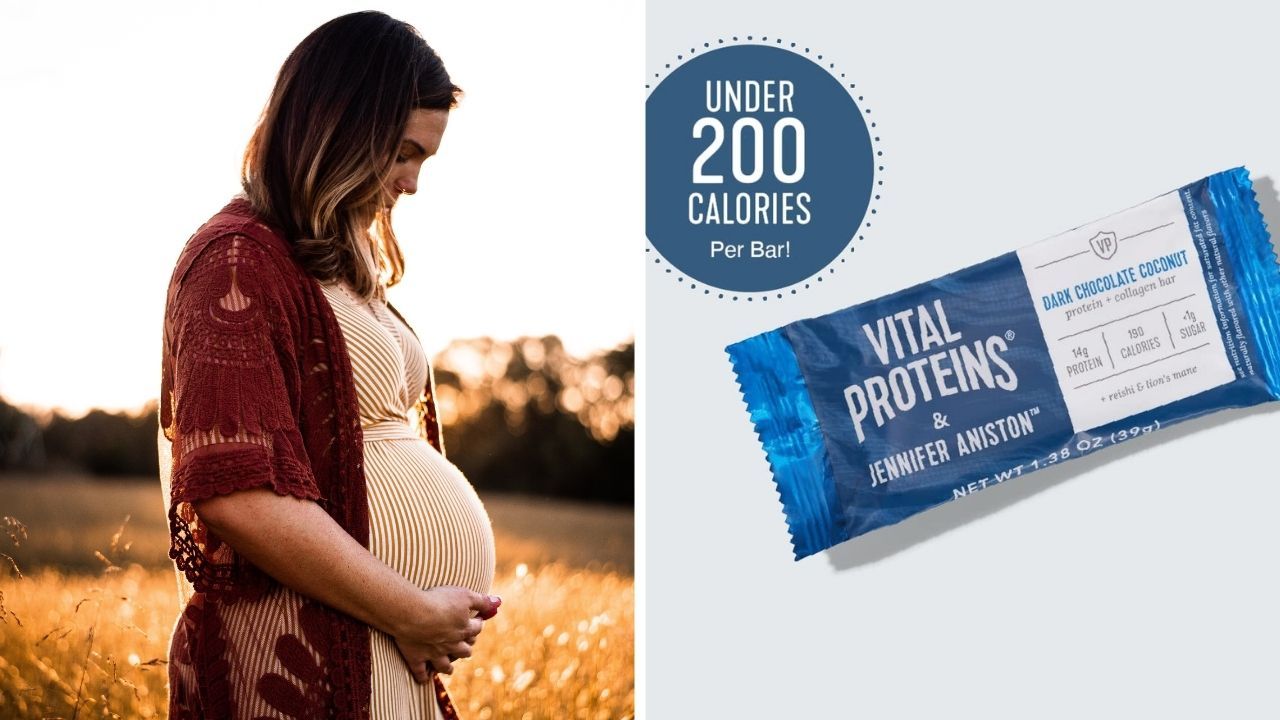
The Real Scoop: Are Protein Shakes Safe During Pregnancy?
Are protein shakes safe during pregnancy? Discover the truth and learn how to choose the best options for you and your baby's health.
Have you noticed the growing popularity of protein shakes these days? They're not just for fitness enthusiasts anymore.
During pregnancy, it's important to get enough protein but many women find it difficult to do so.
To make things easier, protein shakes are becoming a popular choice as they offer a convenient way to get the necessary nutrients. For this reason, I suggest using high-quality protein powder.
But if you're pregnant, you might be wondering whether protein shakes are safe and effective during this critical time. In this blog post, we'll explore the safety and effectiveness of protein shakes during pregnancy.
Importance of Protein During Pregnancy
First, let's chat about why protein is so important during pregnancy.
For pregnant women, protein is even more important because it helps support the growth and development of your baby. Think of protein as the building blocks for your little one's development!
- A study published in Current Development in Nutrition has found that consuming sufficient protein may enhance insulin sensitivity in both pregnant mothers and fetuses.
- Experts recommend that pregnant women consume around 75-100 grams of protein per day, depending on factors such as weight and activity level.
- This amount can change throughout your pregnancy, with greater needs during the second and third trimesters.
So, it's essential to stay on top of your protein intake during each stage of your pregnancy journey.
However, protein shakes are becoming more popular due to their convenience. If you choose to make a protein shake, be sure to use a high-quality protein powder. I can't stress this enough.
Benefits of Protein Shakes for Pregnant Women
Now that we know how vital protein is during pregnancy, let's talk about protein shakes. One of the most significant advantages of protein shakes is their convenience.
We know life can get hectic, especially when you're preparing for a new addition to the family. Protein shakes can be a quick and easy way to ensure you're getting enough protein in your diet.
There are also many vegan protein powder options out there for those seeking a plant-based approach to protein.
Plant proteins found in these peas are usually extracted from yellow split peas. Which is known to contain high levels of branched-chain amino acids (BCAAs).
There are other potential benefits to using protein shakes during pregnancy too.
- For example, they may help improve your energy levels, reduce nausea, and assist with weight management.
- Plus, protein shakes can be a great way to help you meet your increased protein needs during pregnancy.
However, it's important to choose the right protein shake and use them as part of a balanced diet.
In the following sections, we'll discuss the potential risks and safety concerns of protein shakes during pregnancy, the safety of Fairlife Protein Shakes, and Premier Protein Shakes. So, stay tuned!
Risks and Safety Concerns of Protein Shakes During Pregnancy
As you consider incorporating protein shakes into your pregnancy diet, it's essential to be aware of some common concerns and potential risks. Let's take a closer look at these:
Artificial Sweeteners and Additives
Some protein shakes contain artificial sweeteners which may not be ideal in general but especially during pregnancy.
These awful sweeteners go by Aspartame (Equal, NutraSweet, NatraTaste Blue), Sucralose (Splenda), Acesulfame K (ACE, ACE K, Sunette, Sweet One, Sweet ‘N Safe), Saccharin (Sweet ‘N Low), and Xylitol (Erythritol, Maltitol, Mannitol, Sorbitol and other sugar alcohols that end in –itol), memorize them and avoid at all cost.
Many people may not know that consuming artificial sweeteners can lead to a harmful addiction, making us crave sweeter and sweeter foods. This can cause health problems such as obesity, type 2 diabetes, kidney damage, and more.
Shopping for groceries is more mentally tiring now compared to when you were a child watching your parents push you in a grocery cart.
Nowadays, you have to consider the impact of the ingredients in the food you buy on your health and your growing baby's health.
The ingredient lists are lengthy, and even the produce section may have been subjected to food additives like spraying, bathing, or gassing. Here's a list of food additives to avoid if possible.
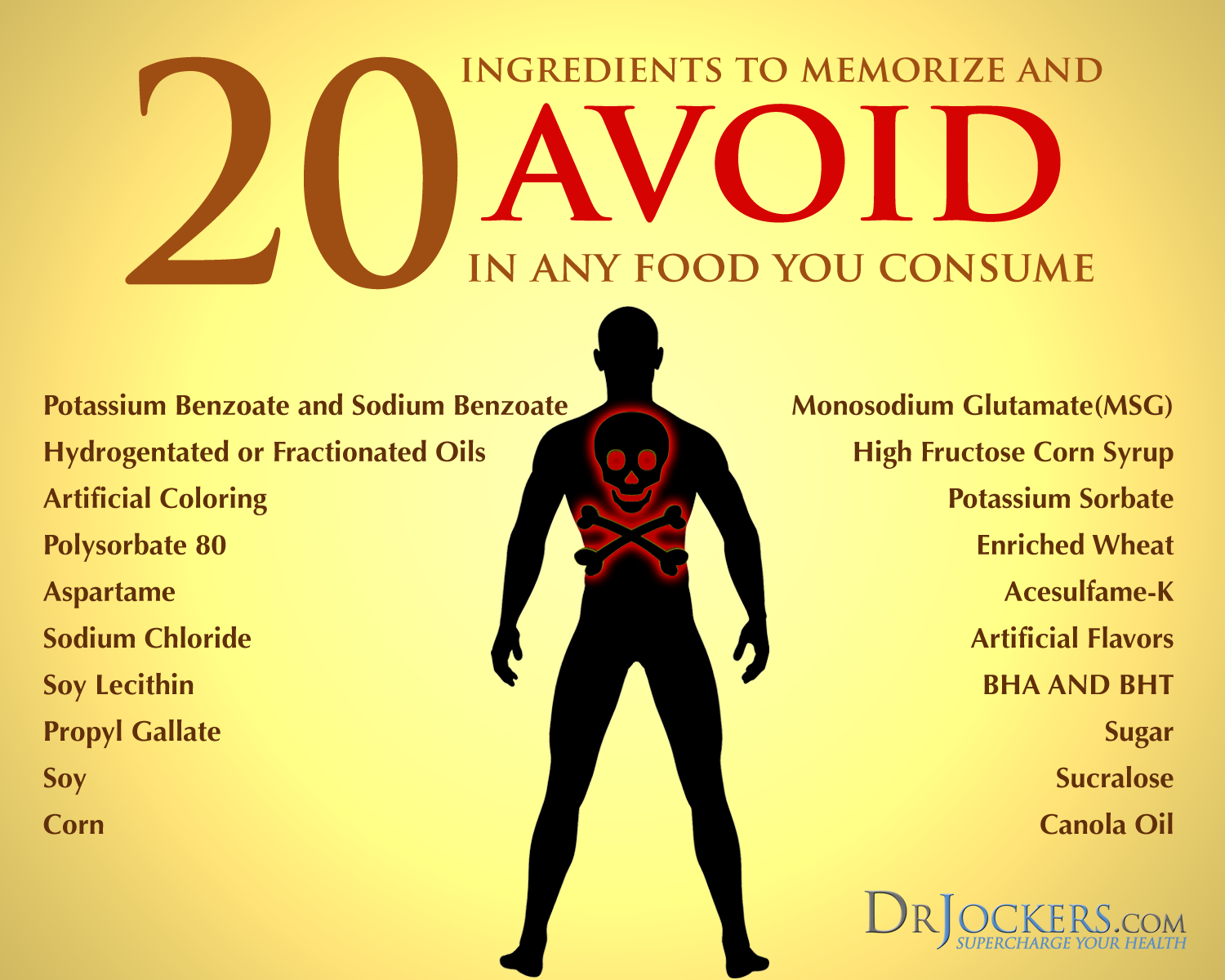
It's best to choose a protein shake made with natural ingredients and minimal additives to ensure you're providing the best nutrition for you and your baby.
High Caffeine Content
Certain protein shakes may contain added caffeine or stimulants, which might not be suitable during pregnancy.
- Coffee, green tea, and black tea do have health benefits, but it's crucial to limit your intake of coffee and caffeinated teas.
- Drinking more than 300 milligrams of caffeine can be problematic, according to a 2013 study published in Canadian Family Physician.
Caffeine is a diuretic and can lead to the release of fluids from the body, which can contribute to dehydration and calcium loss. To maintain a healthy pregnancy, it is best to limit your daily intake of caffeinated beverages to 1 to 2 cups.
It's crucial to read labels carefully and avoid products with high caffeine content.
Heavy Metal Contamination
There have been reports of some protein powders containing trace amounts of heavy metals, such as lead or arsenic. While these levels are usually low, it's important to choose a protein shake from a reputable brand that adheres to strict quality standards.
Inadequate or Imbalanced Nutrition
Relying too heavily on protein shakes could lead to an imbalanced diet or inadequate nutrient intake. Remember that protein shakes should complement a balanced diet, not replace whole foods.
To minimize these risks, it's essential to choose high-quality, natural protein shakes that align with your nutritional needs during pregnancy.
Are Fairlife Protein Shakes Safe During Pregnancy?
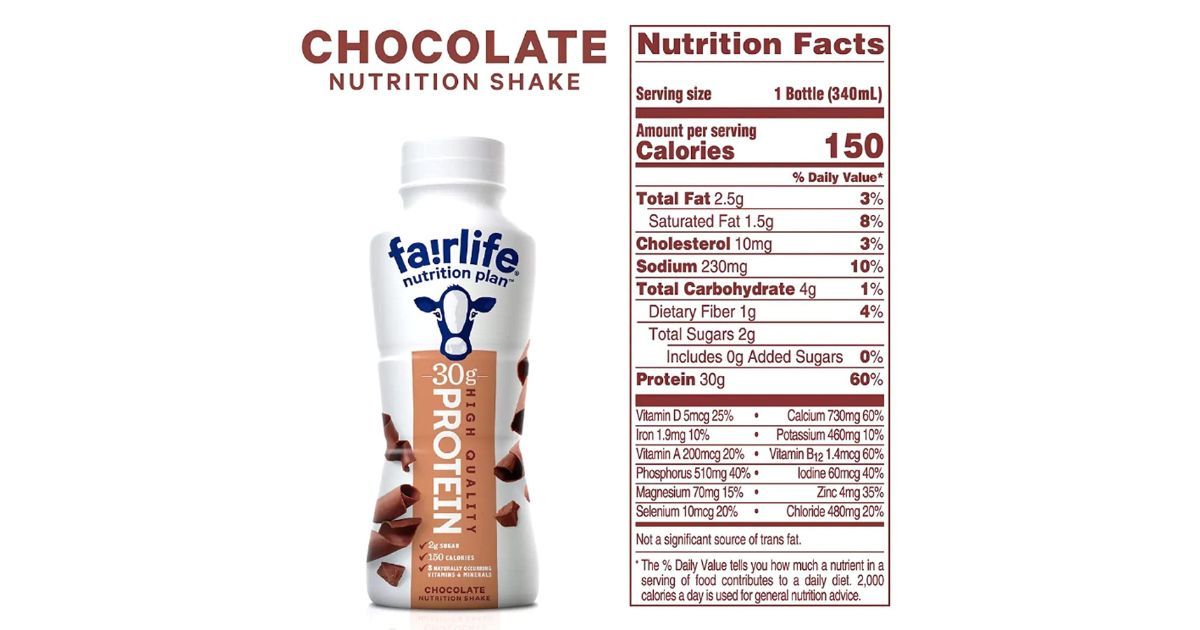
Fairlife Protein Shakes have gained popularity due to their unique features, such as ultra-filtered milk and lactose-free formula.
This protein supplement contains approximately 80% casein and 20% whey protein, which is the same ratio found naturally in milk. But are they safe for pregnant women?
When examining the ingredients and nutritional profile of Fairlife Protein Shakes, we can see that they provide a good source of protein (including all 9 essential amino acids), vitamins, and minerals.
However, it's essential to consider any potential risks or benefits specific to these shakes during pregnancy. And this one does contain sucralose so you may want to avoid or limit the amount you consume.
But based on available information and expert recommendations, Fairlife Protein Shakes can be a suitable option for pregnant women, provided they're used as part of a balanced diet and in consultation with a healthcare professional.
Are Premier Protein Shakes Safe During Pregnancy?
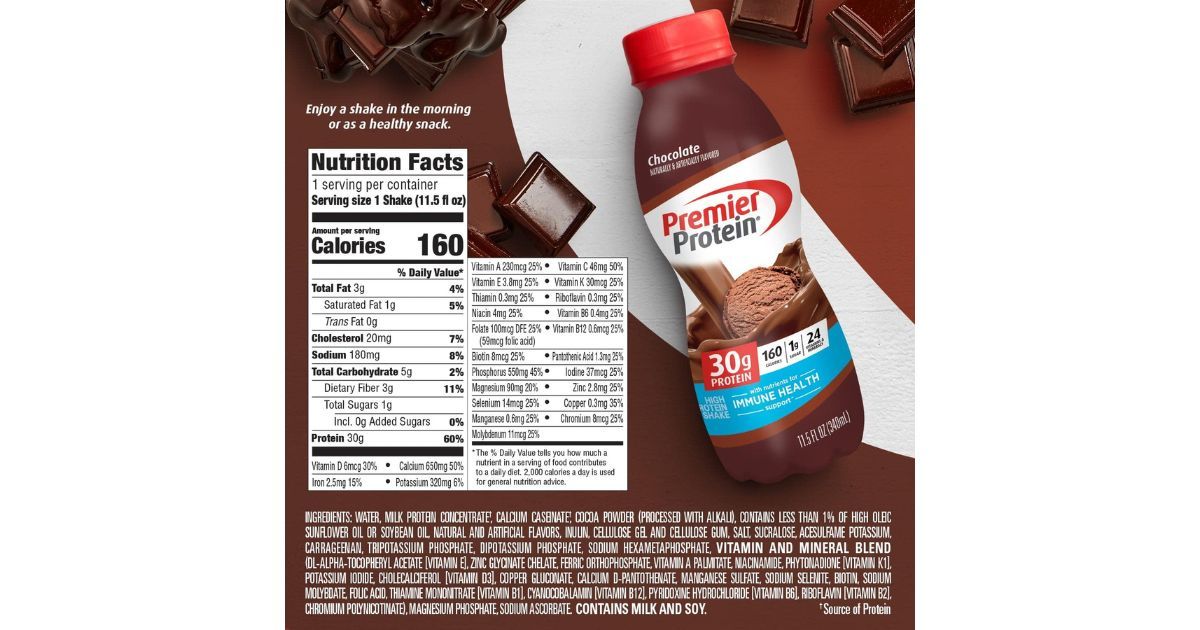
Premier Protein Shakes have become a popular choice among people looking for a convenient and tasty source of protein. But, are they safe to consume during pregnancy?
Let's take a closer look at this particular brand:
When analyzing the ingredients and nutritional profile of Premier Protein Shakes, they provide a substantial amount of protein, vitamins, and minerals.
To determine if Premier Protein Shakes are a suitable option for you during pregnancy, consider the following:
- Evaluate the ingredients list and ensure that it aligns with your dietary preferences and restrictions
- Consult with your healthcare professional to discuss the suitability of Premier Protein Shakes in your specific situation
As with any protein shake, it's essential to use Premier Protein supplements as part of a balanced diet and not as a replacement for whole foods.
Remember, the safety of any protein shake during pregnancy largely depends on the quality of the product and how it fits into your overall diet and lifestyle.
Alternatives to Protein Shakes
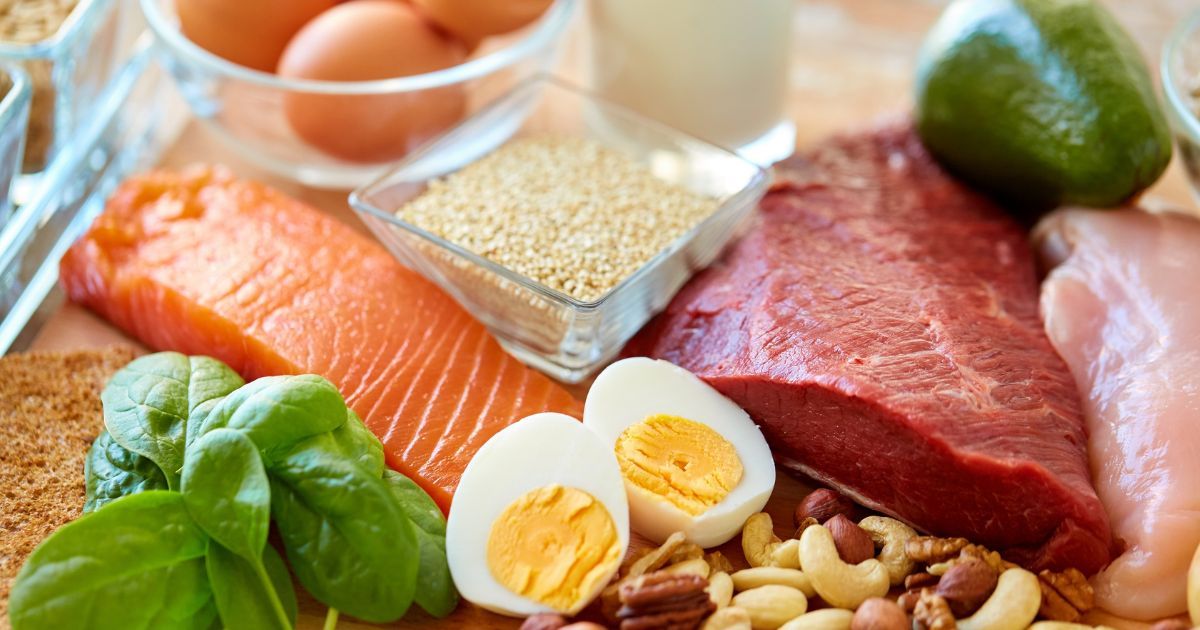
Keep in mind that if you depend mainly on protein powders for your protein intake, you may end up consuming too much protein unknowingly.
How much protein is too much? It is recommended that one limit protein intake to no more than 20 percent of calories to avoid any potential problems.
This is especially true if the protein powder is pure protein, which could nullify any advantages and even cause harm to your health and your baby. Though this may vary according to your activity levels.
If you're hesitant about using protein shakes during pregnancy, there are plenty of alternative sources of protein to consider. Some protein-rich foods suitable for pregnancy include:
- Lean meats
- Dairy products
- Legumes
- Nuts
Incorporating a variety of these foods into your diet can help ensure you're meeting your protein needs without relying on protein shakes.
How to Choose the Right Protein Shake for Pregnancy
If you decide to use a protein supplement during pregnancy, here are some tips for selecting the right one:
- Opt for a brand with minimal additives and artificial ingredients
- Choose a shake with an appropriate amount of protein and other essential nutrients
- Consider any dietary restrictions or allergies you may have
- Consult with a healthcare professional before starting a new supplement
By following these guidelines, you can make an informed decision about the best protein shake for your unique pregnancy needs.
Bottom Line
So are protein shakes safe during pregnancy? Well, we've explored the safety and effectiveness of protein shakes during pregnancy. As well as some potential risks and side effects.
The key takeaway is that protein shakes can be a convenient way to meet your increased protein needs, but it's crucial to choose high-quality shakes and use them as part of a balanced diet.
Remember, it's always best to consult with your healthcare provider for personalized advice on protein intake and supplementation during pregnancy. Stay informed, stay healthy, and enjoy this exciting journey!
Recommended For You...
